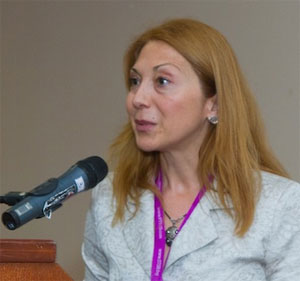More than 200 000 are the Bulgarian citizens who have chosen to work in Germany, but as foreigners, they have certain adaptation difficulties and lots of problems. The press conference on "Cross-border cooperation between trade unions in Bulgaria and Germany to prevent the labor exploitation of Bulgarian citizens working in the EU", organized by the Confederation of Independent Trade Unions of Bulgaria and the Union of German Trade Unions, voiced part of them. According to experts from both organizations, about 2,000 people are victims of labor exploitation in Germany. The main problems faced by our compatriots in Germany are linked to non-compliance with labor law, delay or non-payment of remuneration and overtime, as well asnot covering health insurance on the part of the employer. Many Bulgarians treated at local clinics have not paid for their treatment because they did not have insurance. Therefore, clinics have made claims before the Bulgarian Embassy, which is not part of doctor-patient-healthcare fund relationships. It is also particularly difficult to provide humanitarian aid to Bulgarian citizens in a difficult social situation.
A frequent case of fraud is when people try to find well-paid jobs abroad through intermediaries. They invest big hopes in this opportunity and when they arrive in the foreign country they find themselves deceived. They often remain without their personal documents, kept by the employer. Although they signed an agreement under which they must receive a fixed salary and overtime, the reality is quite different. Conditions which they are forced to liveand work inare also drastically different from those agreed and expected.
 Deputy Chairperson of the Federation of Agricultural Trade Unions to CITUB, Valentina Vassilionova,provided examples of a number of such cases in Italy, whic are common practice when employers are looking for cheap labor:
Deputy Chairperson of the Federation of Agricultural Trade Unions to CITUB, Valentina Vassilionova,provided examples of a number of such cases in Italy, whic are common practice when employers are looking for cheap labor:
“Italy is notorious for the illegal recruitment of agricultural workers for very low wages (‘Caporalato’), when a mediator illegally provides jobs to foreign migrants, and takes a percentage of their earnings. Most of the employees come from large ethnic groups migrating from Bulgaria, Romania or Northern Africa. So, they live in isolation and do not understand the language and they cannot easily find jobs except through someone who has connections with employers. In the fields people work 15 hours each day, which violates safe working conditions. Many of these people live in conditions that are close to those in a barn. They often live in abandoned buildings without water and electricity.”
English: Alexander Markov
“We are a guarantee of stability in the region,” caretaker Prime Minister Dimitar Glavchev states in an address to the Vienna Economic Forum - Sofia Meeting, 2024, the Bulgarian news agency BTA reports. Sofia is hosting the meeting of the..
In 2023, the share of young people aged up to 29 neither in employment nor in education, stands at 13.8%, as compared to 15.1% a year earlier. Compared to the other EU countries, this percentage remains high. 1/7 th of the young people who are..
Joining the Eurozone later in 2025 is a possible scenario, and at this stage, it is a more likely one, Bulgarian National Bank Governor Dimitar Radev said for BTA in Washington during the Spring Meetings of the World Bank Group and the International..

+359 2 9336 661
